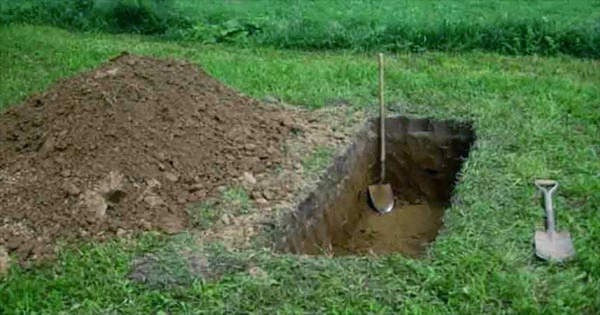If true crime podcasts and Hollywood movies have taught us anything, it’s that there are only two kinds of individuals who bury people in their yards: murderers and ghosts. However, with the typical funeral in the United States costing up to $8,000, many of us are seeking for ways to save money while still honoring the memory of our loved ones. Maybe your aunt Gladys recently kicked it and you don’t want to spend any more money than you already have dealing with the body.
“Home burials,” like many other concerns about what you may and can’t do with corpses, exist in a legal gray area. Ask a Mortician mortician Caitlin Doughty stated, “Burying dad in the back yard can be lawful.” “However, it may also be a bureaucratic nightmare.” “Every nation, city, state, town, whatever,” she explained, “Has various rules on the books when it comes to this, and many have none at all.”
For example, in the United Kingdom, there are no regulations prohibiting you from burying someone in your backyard – or anyone’s backyard for that matter. The only requirements are that you have the landowner’s consent and that the grave is far enough away from any water source to avoid pollution. You’re going to face some serious challenges once you return to the United States of America. If you live in Indiana, Washington, or the District of Columbia, for example, it is illegal to bury someone at home.
The same is true in California, where “any individual who deposits or disposes of any human remains in any area, save in a cemetery, is guilty of a misdemeanor,” according to state health rules. Even the wealthy and famous have been affected by this rule: after Michael Jackson died in 2009, it was first reported that he would be buried at his Neverland Ranch estate. He was finally placed in Forest Lawn Memorial Park, a Glendale cemetery that shelters many of Hollywood’s most famous corpses, after it became clear that the idea would require a weeks-long rezoning procedure to build a state-sanctioned cemetery on the site.
However, things are more laid-back elsewhere in the United States. Tennessee, for example, has no regulations prohibiting home burial, which is why Elvis Presley’s grave at Graceland may be visited. Other states, such as New York, Michigan, and Louisiana, adopt a middle ground and allow you to bury a person on your property if an official funeral director is present. That may appear to be a burden, yet it may turn out to be a blessing in disguise — because…
















